|
Lent is not a diet program. Yes, the Church recommends the ascetical practices of prayer, fasting, and almsgiving. These, though, are meant to help us love God and neighbor more fully. Pope Francis in his homily for Ash Wednesday offered this consideration: “Lent is a journey that involves our whole life, our entire being. It is a time to reconsider the path we are taking, to find the route that leads us home and to rediscover our profound relationship with God, on whom everything depends. Lent is not just about the little sacrifices we make, but about discerning where our hearts are directed. This is the core of Lent: asking where our hearts are directed.” Where is your heart directed? Is it a divided heart? It is easy to compartmentalize. Or so it seems. Eventually, trying to live life in two directions tears us apart. “Our entire being” needs to be engaged, not simply part. We can pray, fast, and do almsgiving, but still be unconverted within. These acts are a means to an end, not an end in themselves. These “little sacrifices” should sharpen our minds and open our hearts more fully to a life directed toward God and neighbor. If they are done simply for us to feel a sense of accomplishment or as a test of our will, then their focus becomes about us. How do we go forward? By realizing that “everything depends” on God, not on us. Once we do, and cooperate more fully with the grace of Christ, our hearts will be undivided, united in love with God and neighbor. May the charity of Christ urge us on! For more resources to accompany you during your Lenten journey, please click here.
0 Comments
“If we are truly animated by the spirit of love, we shall always treat all with love, look on all with love, think of all with love and speak of all with love.” – St. Vincent Pallotti What does it mean to be “animated by the spirit of love?” Jesus said to his disciples that his commandment is “love one another as I love you” (John 15:12). If we believe ourselves followers of Christ, then we must follow this commandment. St. Vincent Pallotti, whose feast day is today, gives us how we do that – treat, look, think, and speak of ALL with love. That is where the challenge is – to do it for all. Pallotti understood that our love, seen as charity, is universal. Pope Francis reminds us in his Encyclical, Fratelli Tutti: “People can develop certain habits that might appear as moral values: fortitude, sobriety, hard work and similar virtues. Yet if the acts of the various moral virtues are to be rightly directly, one needs to take into account the extent to which they foster openness and union with others. That is made possible by the charity that God infuses. Without charity, we may perhaps possess only apparent virtues, incapable of sustaining life in common” (91). Civil and ecclesial unrest, including revolution, as well as pandemic were common things in the Rome of St. Vincent Pallotti’s day in the first half of the nineteenth century. Yet, it did not stop him from recognizing the call of all believers in Christ to go forth as his apostles and witness God’s infinite love to a world that so desperately needed to experience it. Today is no different. We are called to do the same. May the charity of Christ urge us on!
"Commitment to ecumenism responds to the prayer of the Lord Jesus that 'they may all be one' (Jn 17:21). The credibility of the Christian message would be much greater if Christians could overcome their divisions and the Church could realize 'the fullness of catholicity proper to her in those of her children who, though joined to her by baptism, are yet separated from full communion with her' We must never forget that we are pilgrims journeying alongside one another. This means that we must have sincere trust in our fellow pilgrims, putting aside all suspicion or mistrust, and turn our gaze to what we are all seeking: the radiant peace of God’s face” (Evangelii Gaudium, n. 244). Over the nine years that I was at St. Jude Shrine in Baltimore, Maryland, I had the opportunity to participate in and then to host an annual prayer service for Christian Unity. It became a very popular celebration and leaders from various Christian communities participated, including the Archbishop of Baltimore. To me, though, the most important people who participated were the people who went week to week to their faith communities in various parts of Baltimore, but never had the opportunity to pray together with Christians from other communities. Prayer is powerful and to underestimate its power to unite us leaves us lacking in the virtue of hope. Such hope is not naïve, but is based on firm trust in the work of the Holy Spirit. The annual Week of Prayer for Christian Unity will begin on Saturday, January 18th and conclude on the Feast of the Conversion of St. Paul on January 25th. Year after year, Christians are invited to pray that “they may be one.” St. Vincent Pallotti, patron of the Catholic Apostolate Center and founder of the Union of Catholic Apostolate, worked diligently for unity in the Church, using the liturgical Octave of the Epiphany in Rome as a means to unite in prayer members of the Eastern and Western traditions of the Catholic community who were rather disconnected from one another. This celebration was held in the city of Rome from 1836 until 1968. His feast day, on January 22nd, is in the middle of the Week of Prayer for Christian Unity. Collaboration of all Christians can lead us toward Pallotti’s vision, hope, and prayer that one day we may be “one fold, under one Shepherd, Jesus Christ” (Cf., Jn 10:16) Since our mission as the Catholic Apostolate Center is derived from the charism of St. Vincent Pallotti, who fervently prayed for such a day, we invite you to pray not only individually, but draw other Christians together in prayer. Prayer, though, is not the only thing that we can do. We can learn more about what the Roman Catholic Church teaches about the needed work for building unity among Christians. We invite you to explore the many resources that we have on our new Christian Unity page. May we also take up the call of the Catholic Church spanning from the time of the Second Vatican Council to the appeal of Pope Francis today: "The search for unity among Christians is an urgent task... We are well aware that unity is primarily a gift from God for which we must pray without ceasing, but we all have the task of preparing the conditions, cultivating the ground of our hearts, so that this great grace may be received" (Address to the Delegation of the Ecumenical Patriarchate of Constantinople, June 28, 2013). Please visit our Christian Unity resources by clicking here.
“God wants to draw close to us, but he will not impose himself; it is up to us to keep saying to him: ‘Come!’ This is our Advent prayer: ‘Come!’ Advent reminds us that Jesus came among us and will come again at the end of time. Yet we can ask what those two comings mean, if he does not also come into our lives today? So let us invite him. Let us make our own the traditional Advent prayer: ‘Come, Lord Jesus’ (Rev 22:20).” – Pope Francis, Homily for the First Sunday of Advent, November 29, 2020 We enter today into the deeper portion of Advent, the time of intensified preparation for the coming of the Savior into our lives. It is a time marked by naming in the O Antiphons during Evening Prayer each day one of the titles of the Messiah in the Old Testament. The time can be moved through quickly or we can be distracted by the many things that are occurring in our lives and in our world. As the pandemic intensifies in the United States and other parts of the world, even with hope of vaccines becoming available, the long winter looms ahead or so it seems. We are not alone, though! Pope Francis reminds us to invite the Lord Jesus into our lives again today and every day. He tell us in Evangelii Gaudium (The Joy of the Gospel): “I invite all Christians, everywhere, at this very moment, to a renewed personal encounter with Jesus Christ, or at least an openness to letting him encounter them; I ask all of you to do this unfailingly each day. No one should think that this invitation is not meant for him or her, since ‘no one is excluded from the joy brought by the Lord’” (3). The joy that Pope Francis is referring to is not manufactured. It is not found in fleeting things but is found only in the eternal God of Infinite Love who loved us into existence, sustains us, provides for us, and gives us hope, peace, and joy. Let us invite the Lord Jesus more deeply into our lives. We need only ask, and he will come! May the charity of Christ urge us on! May you have a good continuation of the Advent season and a blessed Christmas. Our prayers are with you.
For the past 145 years on the Feast of Our Lady of Mt. Carmel (16th of July) in my hometown of Hammonton, New Jersey, there is a procession through the streets of the statues of various saints that usually reside inside the local parish church. The faithful who are devoted to each saint distribute prayer cards of their patron as they process with the statues through the streets – St. Joseph, St. Anne, St. Anthony, St. Rita, St. Jude, St. Rocco, St. Lucy, St. Vincent Pallotti, and so forth. The Blessed Mother, while at the end under the title of Our Lady of Mt. Carmel, appears also in the procession under various names – Milagrosa, Nuestra Señora de Guadalupe, Our Lady of the Assumption, and the Immaculate Conception, whose Solemnity we celebrate today.
Sometimes, these various titles and ways of representing the Blessed Mother can be confusing for some of those who line the streets of the procession route. My mother, Angela, who has been part of the procession for over 50 years, makes a float with a large Rosary and a statue of the Blessed Mother under the title of the Immaculate Conception on it, although some would call the statue “Our Lady of Grace.” The statue, which is over 100 years old, is patterned after the image on the “Miraculous Medal,” around which is inscribed the words, “O Mary, conceived without sin, pray for us who have recourse to thee.” Since many who come to the procession are not necessarily practicing Catholics, my mother always offers a form of “street evangelization” to those who come to her float to receive a prayer folder that provides instructions on how to say the Rosary. Since the statue of the Immaculate Conception is on a special float, many will come and ask if it is of Our Lady of Mt. Carmel. Sometimes, my mother is asked what the difference is between the Immaculate Conception and Our Lady of Mt. Carmel. She responds cheerfully, “Same Lady, different dress.” My mother then goes on to explain why the Blessed Mother has so many titles. She also assists these curious onlookers in understanding how Mary offers us the greatest example of how to follow Jesus as his disciple. She helps them learn that Mary was prepared from the time of her conception in the womb of her mother, St. Anne, to receive Jesus and did so throughout her life. We, too, are meant to be prepared to receive Jesus into our lives in an ongoing way, especially during the Advent season. We have not been conceived without sin, but we have been washed clean of Original Sin at Baptism (and all prior sin, if one was baptized as an adult). While we have all sinned since that time, our Baptism offers us a share in the mission of Jesus Christ as Priest, Prophet, and King. Though followers or disciples, he also sends us as apostles, or as missionary disciples, out into our challenging world to witness to him by what we say and do. The Blessed Virgin Mary offers us the best example of how to follow Jesus Christ. No matter what title of hers might appeal to us spiritually, she is always “same Lady, different dress.” She was the same in her following of Jesus during her life and continues from her heavenly home to invite us to follow her Son, Jesus Christ, Our Savior and Lord. O Mary, conceived without sin, pray for us who have recourse to thee! The Catholic Apostolate Center is a ministry of the Immaculate Conception Province of the Society of the Catholic Apostolate (Pallottine Fathers and Brothers). The Pallottines and the Center staff will remember you in special prayer on this Solemnity of the Immaculate Conception.
11/12/2020 Holy Detachment During COVID-19: Learning from the Examples of St. Vincent Pallotti and Fr. ChaminadeRead NowIn the last few years, Stoic philosophy has had a new renaissance in our modern culture. Based on the idea that we cannot control our outside surroundings, but can control how we respond, this ancient Roman philosophy is quite appealing to the twenty-first century—especially today when very little seems to be in our control. What I have found helpful from Stoic philosophy during this time is the understanding that we cannot control other people’s actions. We cannot control whether other people maintain social distancing or wear masks. In an election year, we cannot force the outcome that we feel is best for the country. We cannot control whether we work from home, whether schools open, or even when we can see friends. It can be disheartening to see the challenges around us. But a point of convergence between Stoicism and Christianity is an understanding of detachment that reminds us that, while the world is out of our control, we can control how we respond. We can wear masks, maintain social distancing, vote, or schedule virtual meet-ups. Most of all, as Christians, we can pray—turning to the One who is in control and who invites us to use our free will to cooperate with Him. During this pandemic, I have been reminded of one of my faith heroes, Blessed William Joseph Chaminade. As a priest in Revolutionary France, he must have felt like the apocalypse was here and now. Nevertheless, he went into hiding, offering the sacraments in shuttered rooms. When he was in mortal danger, Father Chaminade fled for Saragossa, Spain, where he prayed constantly to Our Lady of the Pillar. The Blessed Mother entrusted the exiled priest to form a society of priests and brothers who worked closely with the laity to re-Christianize France. I cannot help but compare his vision to that of St. Vincent Pallotti, patron of the Catholic Apostolate Center and founder of the Pallottine order. Both men passed away on January 22, 1850. Both of these men also had the Christian understanding of holy detachment to God’s will, as well as a commitment to cooperating with God’s grace to further build up the Kingdom. Rather than complain or say "woe is me," they saw that the world around them needed to change—beginning with themselves. They humbly realized that they could not do this alone, but rather relied on the strength of God: Father, Son, and Spirit. Learning about both of these men and living in a time with many similarities to that of Pallotti and Chaminade, I feel like my time at the Catholic Apostolate Center as an intern has been encouraging. I see the continuity of the spirituality of St. Vincent Pallotti and a convergence with some of the ideas of Father Chaminade. The Center, like these two holy men, promotes the collaboration of the laity and the clergy in building up the church and affirms that all the baptized are called to personal holiness. My internship with the Center has reminded me that life does get tough, but we have a bona fide solution: Jesus Christ. We can do little by ourselves, but when we unite with the Body of Christ, we come together through His inspiration and our actions are multiplied. I am proud to be an intern at the Catholic Apostolate Center, which lives out the rich tradition of the Pallottines. We are all on mission, working in the vineyard of the Lord. As servants of the Greatest Servant, we are called to walk with each other as we work. Through coffee breaks, check-ins, and many kind emails, I feel I am being accompanied—even during this strange work-from-home scenario. I know that my work with COVID resources and social media will not transform the world overnight, but working with a community of people who put Christ first can and will make waves. Our faith, especially as lived out in the persons of Chaminade and Pallotti, encourages us to come close to the Father, Son, and Spirit, who bring our humble work to new heights. On October 17th, the Catholic Apostolate Center celebrated its ninth anniversary of reviving faith, rekindling charity, and forming apostles in the spirit of St. Vincent Pallotti. The Founder of the Union of Catholic Apostolate, the Pallottine Family, gave these words of St. Paul as a motto, “the charity of Christ urges us on” (2 Cor. 5:14). Pope Francis writes in his new Encyclical Letter, Fratelli Tutti, about the nature of this charity: “Charity, with its impulse to universality, is capable of building a new world” (183). As Catholics, we do not reserve our charity simply to those we find acceptable. Our charity is universal, it is catholic, in the broader sense of the word. No one is exempt from offering it and we cannot exempt anyone from our charity. Nor should we reject the charity of another, if we understand charity to mean, as St. Thomas Aquinas did, ‘willing the good of the other.” Charity evangelizes us all. For St. Vincent Pallotti, the apostle, the one who is sent by Christ, never disconnects faith and charity. They are intimately connected to one another. Less than a week prior to the founding of the Catholic Apostolate Center in 2011, Pope Benedict XVI put it this way in Porta Fidei: “‘Caritas Christi urget nos’ (2 Cor 5:14): it is the love of Christ that fills our hearts and impels us to evangelize” (7). As we celebrate our ninth year, we are grateful for the opportunity to live these words. As a ministry of the Pallottine Fathers and Brothers of the Immaculate Conception Province, we continue to serve the Church and the world. On behalf of the Pallottines, thank you to all staff members, collaborators, advisors, collaborating organizations, benefactors, and everyone who uses and promotes our resources. There are many new ones to come. The Center team is in thanksgiving to the Holy Spirit for guiding us to this day and for aiding us in the future. May the Charity of Christ urge us on!
On one wall of my office, above shelves crammed with books on various theological topics, there are several framed diplomas and certificates like you would find in a doctor or lawyer’s office. I rarely look at that wall for any length of time, but, the other day, I did. At various times in my life as I was working on degrees and certificates to gain needed credentials or accomplish my work more effectively, attaining them was very important to me. Now, as I look at the wall, I am not very much impressed by the framed paper that is there. Of course, the degrees and such do permit me to teach and provide credibility for some when I present or write. But people matter more. Much of my time today is spent less with books and papers and more with people. In many ways, I am living out what my father challenged me to do when I was in my twenties.
One Sunday night many years ago (I called each week on Sunday at 7 p.m.), I was talking with my father and whining that I might not get the final grade that I hoped in a course that semester. It was very important to me to have good grades, as if my worth depended on it. He listened very patiently and then said, “Frank, when someone knocks on the rectory door looking to talk with a priest, they will not care what grade you got. They will care only that you are willing to listen to them and be there for them.” Of course, he was very right. My father, who was a successful business person without any degrees, taught me what is at the heart of faith and living faith – God and people. The divine aspects of faith are always mediated through people as individuals and as groups – their needs, their struggles, their concerns, their pain, their suffering, their joy, their love, their sorrow. Faith is about people and their lives, their interaction with God, and their ultimate destiny. The teachings and customs of faith are not ends in themselves. Instead, they should lead to greater freedom and harmony among human beings. Yes, the twisting of teachings and customs of faith into something else has always happened over the millennia and continues to be a challenging reality. But that is simply using them for self-centered reasons, especially when used to justify hate and oppression. Faith ultimately is about freedom – the freedom to be fully human in union with God. It is a freedom given by God’s grace. Faith rooted in freedom moves outward to people and their needs. It is not focused on self, but on God and other people. As the Catechism of the Catholic Church teaches in number 1742: “The grace of Christ is not in the slightest way a rival of our freedom when this freedom accords with the sense of the true and the good that God has put in the human heart. On the contrary, as Christian experience attests especially in prayer, the more docile we are to the promptings of grace, the more we grow in inner freedom and confidence during trials, such as those we face in the pressures and constraints of the outer world. By the working of grace the Holy Spirit educates us in spiritual freedom in order to make us free collaborators in his work in the Church and in the world: Almighty and merciful God, in your goodness take away from us all that is harmful, so that, made ready both in mind and body, we may freely accomplish your will.” After 26 years of living out my vocation to the priesthood as a Pallottine, I can say with confidence again how right my father was. My prayer is that I have accompanied those who needed a listening ear and walked alongside them on their journey of faith, and that I will always continue to do so. May we as Christians remember to put people over paper and strive to live out our faith in true freedom. 1. Have Trust in the Lord: In every situation, Pallotti sought the will of God. Any difficult situation should not discourage us to doubt the goodness of God. That is why when Count Antonio Maria Plebani (who was staying in the region of Marche), wrote with a heavy heart about the safety of his son who was studying in Rome, Pallotti responded saying: “Let us seek God. Let us seek Him always and in all the things. And we will find Him and in Him we will all be saved.” It was the time of the cholera epidemic. The suffering was visible for everyone to see. People - the saints and the ordinary, the churchmen and the lay people – died in large numbers. Pallotti’s close acquaintances – his father, his confessor, his friends, and associates - died during the epidemic. Pallotti did not lose heart or faith. He held himself like a strong tree with a firm foundation that fails to bow down to the strong wind of suffering. The situation is not different today. There is suffering everywhere. The invisible virus seems to be all-powerful. People, even people we know, suffer and die. We especially remember our confrere Fr. Alberto Fernandez Merayo, SAC (Heart of Jesus Province) who died of the deadly Coronavirus on April 7th, 2020. Some of our members in Poland (Oltarzew) have tested positive for the virus. These incidents can shake the foundations of our faith. God seems to be silent or absent. Our prayers seem to fall on deaf ears. It is the same for lay people. People look for God and they cannot seem to find Him! When they seek answers from us, the clergy, it is difficult to try and have answers for them. In spite of everything, it is very necessary that we, especially the priests and religious, stand as solid believers believing in the goodness of the Lord. In the time of Pallotti, there was the exemplary Pope Gregory XVI. Today we have Pope Francis doing the same. He sends out the message of a pastor who is truly concerned for the faithful and who continues to battle for them with his prayers. His actions have indeed strengthened the Catholic faithful all over the world. A man of God standing firm in faith—even in the most difficult times—is the most powerful symbol. Pallotti was one such symbol for the people who sought his advice in the most difficult times of the cholera epidemic. 2. ‘Do your Duties’: Our first necessary act is to be faithful and to stand firm in our beliefs. Faith alone does not suffice. “Faith without works is dead” writes the Apostle James (Jas 2:14-17). In a letter written to Giovanni Merchetti, a married lay person and a collaborator of Pallotti, we find the following advice: “it is better to attend to one’s proper duties [in the time of the epidemic].” Pallotti seems to be a believer in the battle cry: ‘Stop whining. Start working.’ Every person is supposed to do his or her duty in all situations, especially in the difficult times. The fear of sickness can limit us with inaction. Life under lockdown can also eventually result in lethargy. However, we should not allow our spirit to be burdened. Life under lockdown amidst the sickness should not be an excuse. We are supposed to be doing our duties to the best of our ability with the limits in place. In this regard, some great examples in these times are medical doctors, selfless nurses, the numerous pharmacists, generous healthcare workers, the committed members of the staff in hospitals, the police force, the proprietors of various shops selling the necessary food, the unknown truck drivers, the service minded priests and the other Church personnel. They were acknowledged by our beloved Pope Francis when he delivered the extraordinary blessings ‘To the City and to the World’ (Urbi et Orbi) on March 27th, 2020. The world will move on and there will be hope if everyone does his or her duty. Pallotti was very much aware of this simple but a significant fact. Because of Pallotti’s hope, one of his advices for the time of epidemic was ‘to do one’s duties.’ 3. Acts of Mercy: The next area in which Pallotti directed his actions in difficult times like the cholera epidemic was to be sensitive to the needs of his neighbors. To be charitable is good, and to be charitable in the time of epidemic is better. It is best when the beneficiary can in no way repay you. Pallotti was an exemplary figure in that sense. He engaged both in the Spiritual and Corporal Works of Mercy. Spiritual Works of Mercy: As the epidemic was ravaging Rome and wreaking havoc on the physical and spiritual lives of people, Pallotti wasted no opportunity to restore and strengthen the faith of the people. To the people who sought his counsel, he reassured them that God was still in control. It was praiseworthy that people sought the will of God in everything, including in the rough times of the epidemic. To the Apostolic Secretary in Vienna, who was very anxious for his life, Pallotti assured him that he would come out of the scourge untouched. Later, when he was proved right, Pallotti wrote to the secretary to ask for pardon and forgiveness from the Lord for the moments he was doubtful and weak in his faith. That was Pallotti’s way of counseling the doubtful and strengthening the feeble minded. The people who received the instructions of Pallotti were struck by the certainty with which he pronounced his teachings. Pallotti was also on the forefront of praying for the suffering people. When the Church organized a novena in honor of Our Lady and when it decided on a barefoot procession with the icon of the Madonna Salus Populi Romani, Pallotti plunged himself completely into prayerful ministries. For instance, Pallotti organized a Triduum in the Church of the Holy Spirit of the Neapolitans with a special intention to procure the necessary graces for the people infected with cholera. On another occasion, for the votive procession organized by the Church, Pallotti tried to get as many clergy as possible to participate in the procession. That was Pallotti’s service through prayer. Pallotti also spent a lot of time in the confessional hearing the sins of the faithful, and he encouraged his fellow clergy to do the same. In the extraordinary time of the epidemic, Pallotti requested the ministerial faculties for reserved sins for his collaborators (Frs. Melia and Michettoni). That was the comforting ministry of Pallotti in the time of the epidemic. Corporal Acts of Mercy: Pallotti also had the foresight to know that the spread of the epidemic would cause many people to lose their jobs and cause financial stress on many families paying for necessities and medical expenses. This would eventually result in a great increase in the number of the poor. Pallotti had an innovative idea to help such people in need. He placed a small box in the Church of the Holy Spirit of the Neapolitans (where Pallotti was the Rector). It was a box in which people in need could drop a piece of paper with their names, surnames, the place of their residence, their parish and their particular pressing need. Later the members of the Union were sent two by two with the relief materials to the homes of the people in need. Even before the arrival of the epidemic in Rome, when cholera was already present in the port city of Naples, Pallotti had sent bread to the affected people there. Thus, we learn that Pallotti fed the hungry when they most needed food. Besides carrying food for the needy, Pallotti and the members of the Union also attended to their other needs. They carried clothing to whoever lacked and asked for it (clothing the naked). They distributed lemons, which were thought to be a powerful medicine against the cholera outbreak, to the sickly. Pallotti asked his collaborators to assist the sick in their suffering. Additionally, Pallotti was seen on many occasions walking behind a hearse for the dead with his surplice and stole (burying the dead). Today, we are called to emulate the example of St. Vincent Pallotti. If an act of charity is possible, it should be done. Everyone is called to respond to the call of charity. There is no excuse for anyone. If a person is old or sick in bed, he or she can certainly pray for all of suffering humanity and they can offer his or her suffering as mortification for the world’s sins. If a person is young and active, he or she should participate in as many of the works of mercy as possible. A priest can very well say votive masses for the end of the epidemic. A religious or lay associate can dedicate him or herself to pray for the sick and the suffering and for the medical professionals who fight the deadly virus. The priests and religious are to stay with the flock -- if and when possible, they should be easily available to assist the sick and the dying. Fr. Giuseppe Berardelli (72), a priest from the Diocese of Bergamo, is a great example of Christian service and witness. He gave up his ventilator so that a young patient could recover. Many other priests and religious have served the sick and the dying and eventually fell victim to the virus. The Church and its dedicated personnel have been at the forefront caring for the needs of the people. If Pallotti were alive, he would be walking around in the hospital wards with the necessary protective equipment assisting the sick and the dying. He also would have encouraged the members of the Union to do the same. If such action is not possible (owing to the nature of the disease and the lack of enough Personal Protective Equipment), the other acts of mercy (corporal acts of mercy) are very much feasible. There are hungry people and abandoned families around us. We need to have compassionate eyes to look at them and listen to their needs to then do what is possible. Some might need immediate nourishment; some might require medicine; some might ask for another form of help. We need to look around and recognize people’s needs and respond. Pallotti responded. As his followers, we need to walk the same path. As a summation, I would say that if St. Vincent Pallotti were alive today, seeing the ravages of the current pandemic, his exhortation for his followers would have been something in the line of the following: “Do not worry. Pray and have trust in the Lord. Do your duties. And do not forget the acts of mercy.” To learn more about St. Vincent Pallotti, please click here. For more resources on the COVID-19 pandemic, please click here. “Seek God and you will find God. Seek God in all things and you will find God in all things. Seek God always and you will find God always.” – St. Vincent Pallotti
Today is the 225th anniversary of the birth of St. Vincent Pallotti. In the first twenty years of his life, he experienced a pope run out of Rome by revolutionaries who died in exile and another taken from Rome and held in France by Napoleon. When that pope, Pius VII, returned in 1815, Pallotti was 20 years old and three years away from his ordination to the priesthood. He saw people who were baptized throw off their faith and take up revolution. He witnessed clergy and religious who needed renewal. Twenty years later, in 1835, he founded the Union of Catholic Apostolate, an association of lay people, religious and clergy in order to assist in the Church’s missionary efforts, revive the faith of Catholics, and enkindle charity in the hearts of all. Amid a cholera pandemic that hit Rome in 1837, he worked tirelessly along with the small and new community of priests and brothers, as well as lay people, to care for the suffering and the dying, both spiritually and physically. In the aftermath of that pandemic, which left many orphans, St. Vincent Pallotti founded through the Union of Catholic Apostolate the House of Charity in Rome in 1838. This orphanage for girls is still in operation today and is the birthplace of the Pallottine Sisters. St. Vincent Pallotti evangelized in the streets, cared for the poor, taught and provided spiritual direction to seminarians, clergy, and religious, served in prisons and hospitals, was confessor to the poor and popes, aided the Church’s work in the missions, including the United States, and fostered what today we would call collaboration and co-responsibility among Catholics so that they would live as apostles of Jesus Christ. He was also a mystic who experienced God as Infinite Love and Mercy. It was this experience of God that sent him forth, urged on by Christ’s charity or love (2 Cor. 5:14). Even seeing a third pope and long-time friend, Bl. Pius IX, flee Rome due to revolution in 1848, St. Vincent Pallotti still worked tirelessly until his death in 1850 in the hope that all would come to full life in Christ. His great project of the Union of Catholic Apostolate did not grow large in his lifetime. Today, though, thousands of his spiritual sons and daughters of the Union of Catholic Apostolate—which also includes the Pallottine Fathers, Brothers, and Sisters—continues his work in 56 countries around the world. Pallotti was canonized by St. John XXIII in 1963, just over a month after the close of the first session of the Second Vatican Council—an appropriate time given the Council’s teaching that all are called to holiness and to live as apostles of Jesus Christ. Blessings to all on the birthday of St. Vincent Pallotti! May the Charity of Christ urge us on! Perhaps by this time, having become frustrated by the fact that even for a relatively short period of time we have been forced into isolation, we might find ourselves asking: “Why now?“ , “Why this bad?”, and perhaps even cursing the fact that this pandemic has so radically turned our lives upside down in what seems but a few moments. It might be an experience so taxing because it is so very different for us, but certainly not to human history. Between 1830 and 1837, a cholera epidemic swept through Europe and North America. It began in India, spread to what was at the time called Arabia, and then to Iraq. In 1831, the epidemic reached the Caucasus and soon after spread to Poland, Hungary, Portugal, France, the Netherlands, Spain, and eventually to Italy. Like epidemics in the past centuries, this epidemic also spread from city to city by way of local ports. In Rome, news of the spreading illness was met with the usual responses of apprehension and fear. But there was no small number of people who actually doubted that the disease would have a significant impact on Rome. In July of 1837, the first three people in Rome died of cholera. However, the news media denied that cholera was in fact the cause of these deaths and claimed that lies were being spread by persons seeking to cause panic and attempting to disturb the social well- being of the city. Is it not true that our initial reaction to the news of the Coronavirus was that it was far away in China and so our concern for the spread to the U.S. was rather limited? During the time of the cholera infestation of Rome, the charity of a Roman priest, now St. Vincent Pallotti, emerged in a special way. He immediately saw to it that his priests of the Congregation of the Catholic Apostolate, which he had founded, were on hand constantly (as was he) to meet the spiritual needs of the many penitents who were constantly entering the Church of Spirito Santo where Vincent served as rector to have their confession heard. Assisting the sick, caring for their families, and also spending many hours in the confessional, Fr. Vincent was extremely busy. To respond to the numerous and varied appeals he received from so many, Vincent divided the city of Rome into three sectors, entrusting each sector to his priests working in collaboration with the lay members of the Union of the Catholic Apostolate, which he had also founded, to meet the various spiritual and material needs of a then desperate people. Funds were collected and distributed to families throughout the city who had lost the person responsible for their principal source of income. The rectory of Spirito Santo became a center where families who overnight had become destitute could in writing request whatever it was they needed, and the priests with their lay cooperators would bring to the home whatever was required: bread, meat, fruit and other necessities of life as well. They found beds for the sick, redeemed articles that had been pawned out of desperation for ready cash, and helped families to pay bills that would allow them to purchase further necessities. Vincent and his priests were ever on the move, caring for the ill. They were, at the same time, finding an increasing number of children who had lost their immediate family and now had no one to care for them. In 1838, the year following the end of the epidemic, Vincent organized a lottery offering excellent and expensive prizes donated by his more affluent friends in order to raise funds to begin a program of caring for the orphans left behind by the epidemic. Many of those who won returned the prizes to Vincent that they might be sold and thereby add further monies to the orphan fund. It might well happen, as it did in Vincent’s day, that one or other of us might be called upon to meet certain needs of persons made quite helpless by the present pandemic. No one of us knows either the day nor the hour when we might run into a situation that calls for immediate involvement and appropriate response with no questions asked. May the life of St. Vincent Pallotti, who prayed that “the work of the Blessed Trinity be realized in us,” be a model and inspiration for us during this time. Cf St. Vincent Pallotti: Prophet of a Spiritual Communion. Ed. Fr. Francesco Todisco, SAC. Trans. Kate Marcelin- Rice. Herefordshire, United Kingdom. Gracewing, 2015 Today, the Catholic Apostolate Center is celebrating its 8th anniversary of reviving faith, rekindling charity, and forming apostles. We have both had the honor of being a part of this amazing and spirit-filled endeavor since its earliest days and remember fondly what it took to get started. When Fr. Frank Donio, S.A.C. gathered a small group of committed collaborators together to think about what the Pallottines of the Immaculate Conception Province could do to answer the Holy Father's call to a new evangelization, it was clear that we needed to work with active Catholics. We felt called to meet them where they were on their individual faith journeys. This meant that we needed to engage all that the internet had to offer, to use emerging social media, and to reach people where they were conducting their daily lives. In the last eight years, the work done by the Catholic Apostolate Center has impacted the lives of thousands of people through conferences and events; hosting hundreds of webinars and Facebook Live events; providing learning and educational opportunities through seminars and speaking engagement; making spiritual posts on Facebook, Twitter, Instagram; developing programs with our affiliated partners; and providing space for collaboration among Church entities. All the while, our mission is not necessarily to reach the masses, but to reach the one. We work collaboratively to develop our resources – working with the individual gifts and talents that each member of our team and our collaborators possess, always leaving room for the Holy Spirit. Each of us has grown professionally and personally in an environment that challenges, affirms, and provides us opportunities to share our own gifts through presenting, writing, video production, marketing, management, and administration. We look forward—through the Holy Spirit and God’s Divine Providence—to continuing our mission for another eight years and beyond.
“The religious commitment to procure the propagation of the Holy Faith throughout the world cannot be separated from that to procure to revive the Faith, and to rekindle Charity among Catholics, and this not only because such is the order of Christian Charity, but also because there is a need to rekindle the Holy Faith and to rekindle Charity among Catholics.” – St. Vincent Pallotti (OOCC III, 16)
As we celebrate today the 8th anniversary of the Catholic Apostolate Center during this Extraordinary Missionary Month declared by Pope Francis, these words of St. Vincent Pallotti offer us a summary of the interconnection of the Church’s missionary efforts, encompassing what we now call Evangelization and New Evangelization. Pallotti understood this in the first half of the nineteenth century. He knew then what the Church is calling for now, co-responsibility of all the baptized for the mission of Christ and his Church. We are all sent forth as apostles, as missionary disciples! The Center accomplishes its mission of reviving faith, rekindling charity, and forming apostles through intense collaboration, or “holy cooperation” as Pallotti would call it, with God and others. The only way the Center has come to this day is through the great collaboration among staff, collaborators, advisors, Pallottines, consultants, affiliates, and many others who are co-responsible for its mission. The Holy Spirit who came upon the Blessed Virgin Mary and the Apostles and disciples in the Cenacle in Jerusalem has sent us forth and guided us in ways that we could never have imagined back in 2011 when the Center began. We do this always in service of Christ and his Church just as Pallotti did. Thank you for your support of our efforts and know that our prayers are with you! Mary, Queen of Apostles, pray for us! St. Vincent Pallotti, pray for us! May the Charity of Christ urge us on! Silence is an old friend—one I don’t often get to spend quality time with. But when I do, we give each other a knowing glance, a subtle nod, a familiar smile. It doesn’t matter how many days, weeks, or months have passed—we can pick up right where we left off without any sheepishness. Today, I come in through the front door, take off my coat, and settle into the warm embrace of silence, letting it melt any frost that has accumulated in my heart. Silence knows I’m not able to visit as often these days, but she doesn’t hold a grudge or look at me disapprovingly. She gives me a tender look and welcomes me with open arms – relishing every moment I give her to rejuvenate my soul. And she can work very quickly—a few minutes, hours, (in this case) a day. Any time spent in her company is restorative. She is generous with herself. I was reminded of that this past weekend when I attended a Silent Day of Reflection at the Catholic Apostolate Center’s headquarters at Green Hill. This little oasis sits on 14 acres just a few miles outside of the hustle and bustle of Washington, D.C. and offers ample spaces, both indoor and outdoor, for prayer and reflection. The theme of the day was The Beatitudes. The schedule was sprinkled with powerful moments of prayer: Mass, Adoration, Confession, a reflection on the day’s theme, and Lectio Divina. There was also time for quiet personal prayer. Participants had the opportunity to walk the grounds, enjoy the gardens, pray in the chapel, journal, color, or simply rest. The home of the Pallottine Fathers and Brothers of the Immaculate Conception Province is a treasure, offering a welcome place of retreat, gathering, and prayer. The Pallottines, as well as the staff of the Catholic Apostolate Center, are pleased to invite and welcome those seeking formation, personal enrichment, rejuvenation, or spiritual refreshment to Green Hill and look forward to continuing to provide opportunities to do so. As a wife, mother, blog editor, homeowner, and budding gardener, I find my days often blur in the hasty movement of time. I frequently long for silence and reflection, but do not have the time or space for it. The Silent Day of Reflection organized by the Catholic Apostolate Center was an answer to a prayer and a gift for my spiritual life. After spending the day at Green Hill, I got up from silence’s hearth reluctantly, feeling gently lulled, peaceful, held. It was a refreshing day of encounter with God amidst the beautiful backdrop of nature, and I didn’t want it to end. Not all have the wisdom to seek silence, to receive the gifts she awaits to impart. We often take her for granted, drown her out, or try to replace her—convincing ourselves she is old-fashioned, irrelevant, unnecessary, extinct. She awaits all the same, ever ancient, ever new—the immortal gift of her Creator, the vehicle of His encounter, the respite of all souls. Will you seek her? To learn more about Green Hill and upcoming events, please click here. On September 15, my Pallottine confrere, Fr. Richard Henkes, S.A.C., was beatified in a beautiful and spiritually moving Mass in Limburg, Germany. Having preached against the Nazi regime while serving in what is now the Czech Republic, Fr. Henkes was arrested in 1943 and imprisoned in the Dachau concentration camp. He died serving people with typhoid in the barracks where he was their “secret pastor.” The Heart of Jesus Province of the Society of the Catholic Apostolate summarizes his life and death in this way;
“The Pallottines consider his sacrifice as one of a brave warrior and as a testimony for the Christian faith as well as a martyr of Christian charity.” Blessed Richard Henkes was not perfect, but Christ perfected him through his living witness unto death of the motto of the Pallottines: “The Charity of Christ urges us on” (2 Cor. 5:14). Rekindling charity as St. Vincent Pallotti called us to do, often means witnessing to what is just in this world, even if it causes persecution and suffering. We are called to accompany our brothers and sisters who are oppressed and in need without counting the cost to ourselves and our own comfort. God provides us with the ability to do such things – to grow in holiness – as Blessed Richard Henkes came to know. We do not do it on our own. Pope Francis offers an important reflection for our day when he says in Gaudete et Exsultate: “Persecutions are not a reality of the past, for today too we experience them, whether by the shedding of blood, as is the case with so many contemporary martyrs, or by more subtle means, by slander and lies. Jesus calls us blessed when people ‘utter all kinds of evil against you falsely on my account’ (Mt 5:11). At other times, persecution can take the form of gibes that try to caricature our faith and make us seem ridiculous. Accepting daily the path of the Gospel, even though it may cause us problems: that is holiness” (94). May the Charity of Christ urge us on! Learn more about Blessed Richard Henkes, S.A.C. at www.CatholicApostolateCenter.org/Henkes We are now offering a new book about Blessed Richard Henkes, S.A.C. Click here to order the print version and here for the eBook. |
Details
Archives
July 2024
Categories
All
|
About |
Media |
© COPYRIGHT 2024 | ALL RIGHTS RESERVED

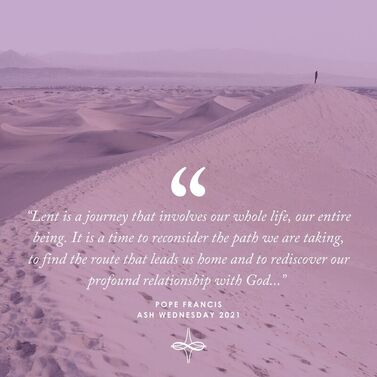
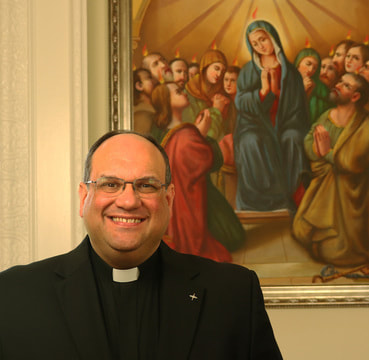
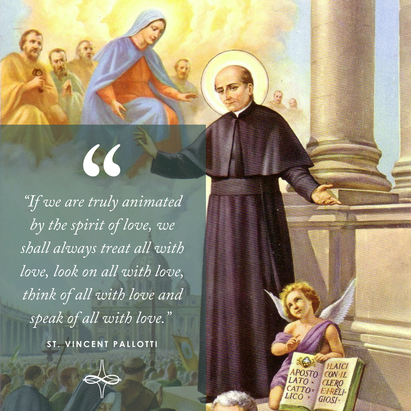
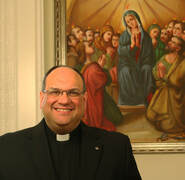
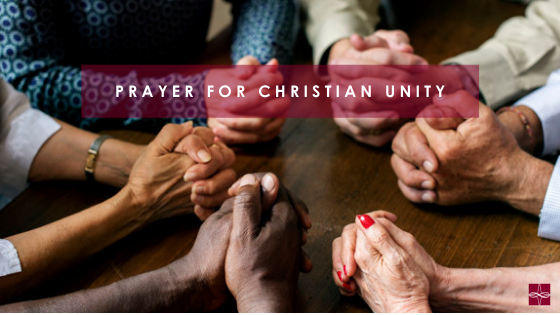
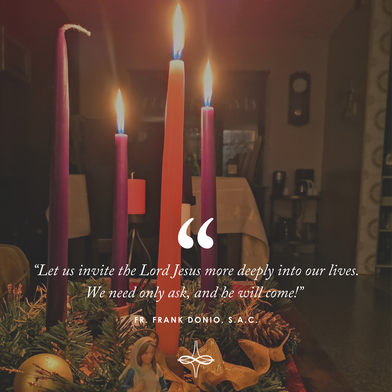
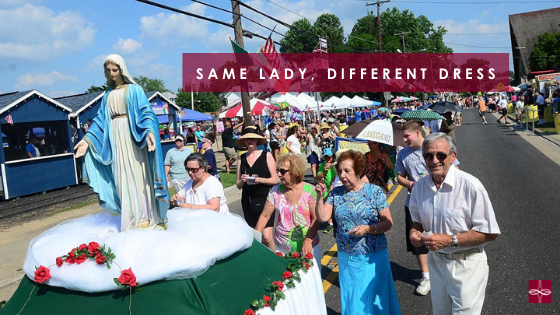
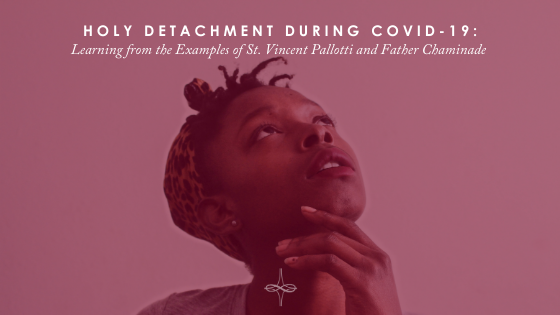
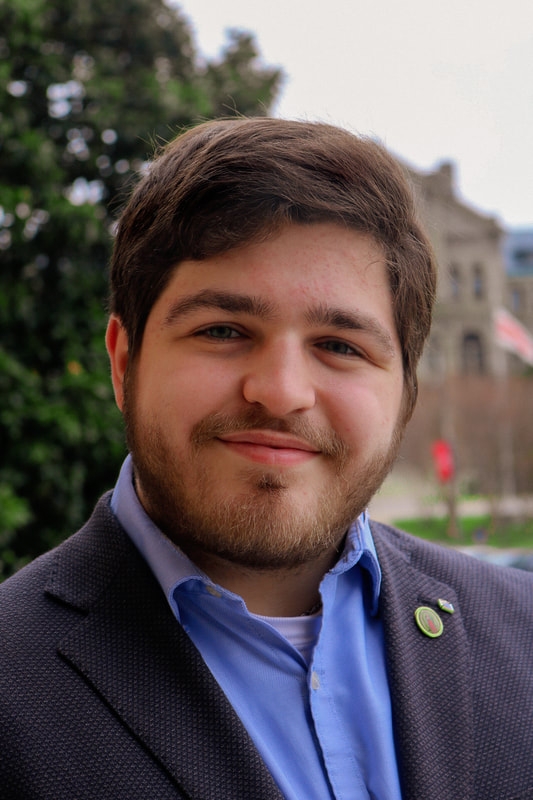
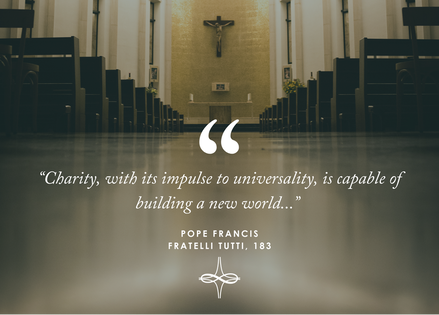
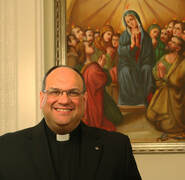
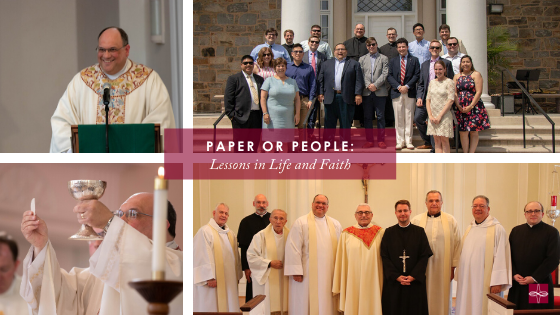
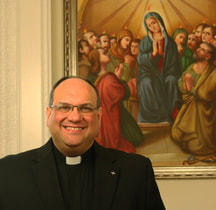
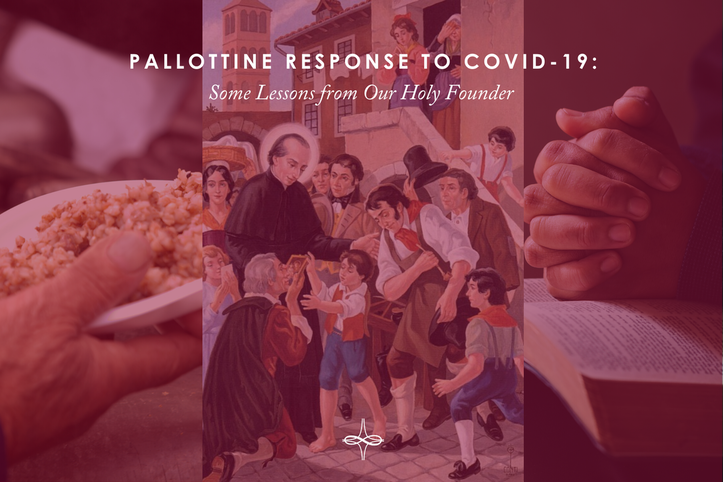
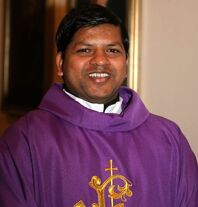
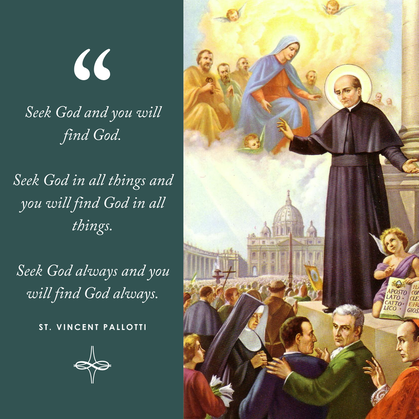
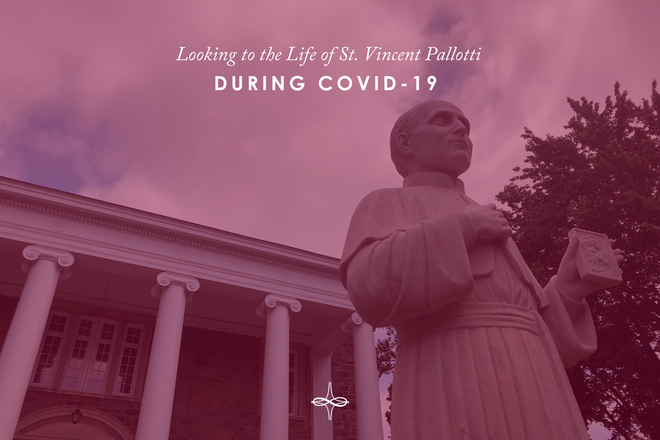
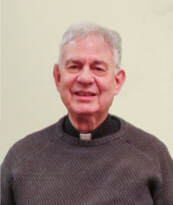
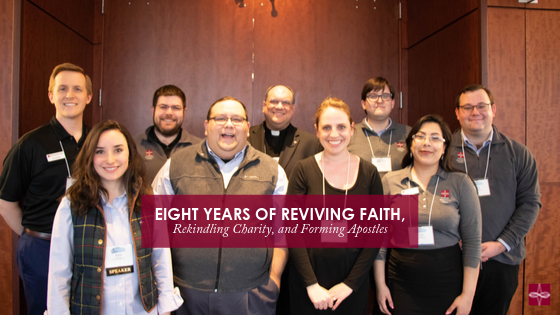
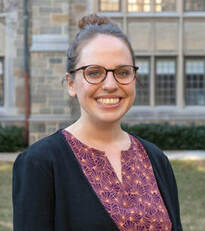
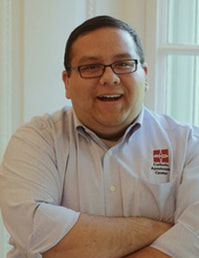
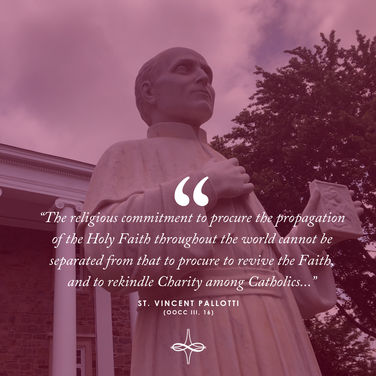
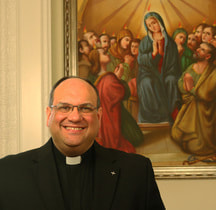


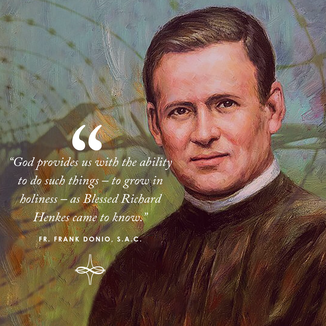
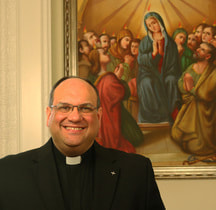
 RSS Feed
RSS Feed